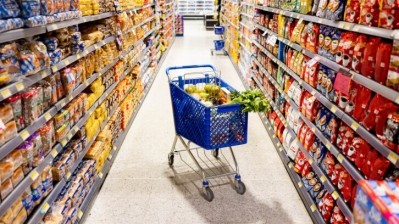Yo Mama’s sauce leverages Amazon growth, secures Albertsons’ retail partnership

The startup recently secured shelf space at more than 800 Albertsons nationwide by meeting consumer demand for its clean-label, better-for-you pasta sauce via its direct-to-consumer business.
Yo Mama’s journey from DTC to retail started with Amazon as its initial platform to build customer loyalty and establish brand visibility, David Habib, founder, Yo Mama’s, told FoodNavigator-USA.
The brand uses whole and natural ingredients “that Mom has in her pantry” and excludes gums, fillers and preservatives, which is “relevant for most customers today” who are looking for clean labels, Habib said.
Amazon’s platform was key in building Yo Mama’s digital presence, which grew during the COVID-19 pandemic, he said. Currently, the brand is “in about 25,000 doors nationwide” and exports to 11 countries. As a top selling sauce on Amazon, the brand’s consistent growth caught the attention from Albertsons’ buyer, Geno Genovese, sales and innovation manager West coast, Yo Mama’s, told FoodNavigator-USA.
“Albertsons has a very big reach and in order to provide their customers with something consistent, they need to make sure that who they partner with has the infrastructure and the planning to keep up,” Genovese said.
He added, “The fact that we have been able to grow consistently, build our infrastructure and be ready so that when somebody like Albertsons says yes … we can keep up with that volume and … offer a quality product that [they] do not have on the shelf right now.”
Meeting Alberstons’ and other national retailers’ demands requires long-term planning and close coordination with co-packers to support production and distribution at scale, Genovese emphasized. Given that the brand markets itself as a premium, low-sodium, home-cooked-style pasta sauce, the company’s established position on Amazon and solid performance in natural and conventional channels provided confidence in its ability to support Albertsons’ high volume, he added.
Prioritizing ‘solution selling’ over product promotion
Yo Mama’s entered a category “dominated by a lot of these bigger players” which provided fodder for the brand to differentiate itself more through ingredients and nutrition benefits, Habib said.
“It goes back to the principle of substitution. Why should that buyer take out space on their shelf to add your sauce? For us, we really go into more of a solution selling versus product selling. … We are 60% lower in sodium than any other brand name sauce. We use all fresh ingredients. We have very clean packaging and that is really an important philosophy,” Habib said.

As consumers look for low-carb, low-sodium options, Yo Mama positioned itself as “being that retailer solution for that that specific market need,” Habib added.
Yo Mama also adopts a “start small, think big and scale quickly” approach around new launches, Habib said. Rather than producing mass quantities, the brand starts small, which allows for flexible adjustments when accepting feedback and making changes before larger-scale production.
Habib also advised the importance of listening to the buyer. While having a clear strategy is essential, understanding a buyers’ objectives – whether it is innovation, classic flavors, promotion plans or packaging sizes – helps brands tailor their approach.
“Ultimately, the buyers and … the customer [are] going to tell you what they want, what they are looking for and you have to be able to pivot and not assume that you know what you are doing. … It is not a one-size-fits-all for any retailer, even as close as they may appear to be,” Habib said.

















